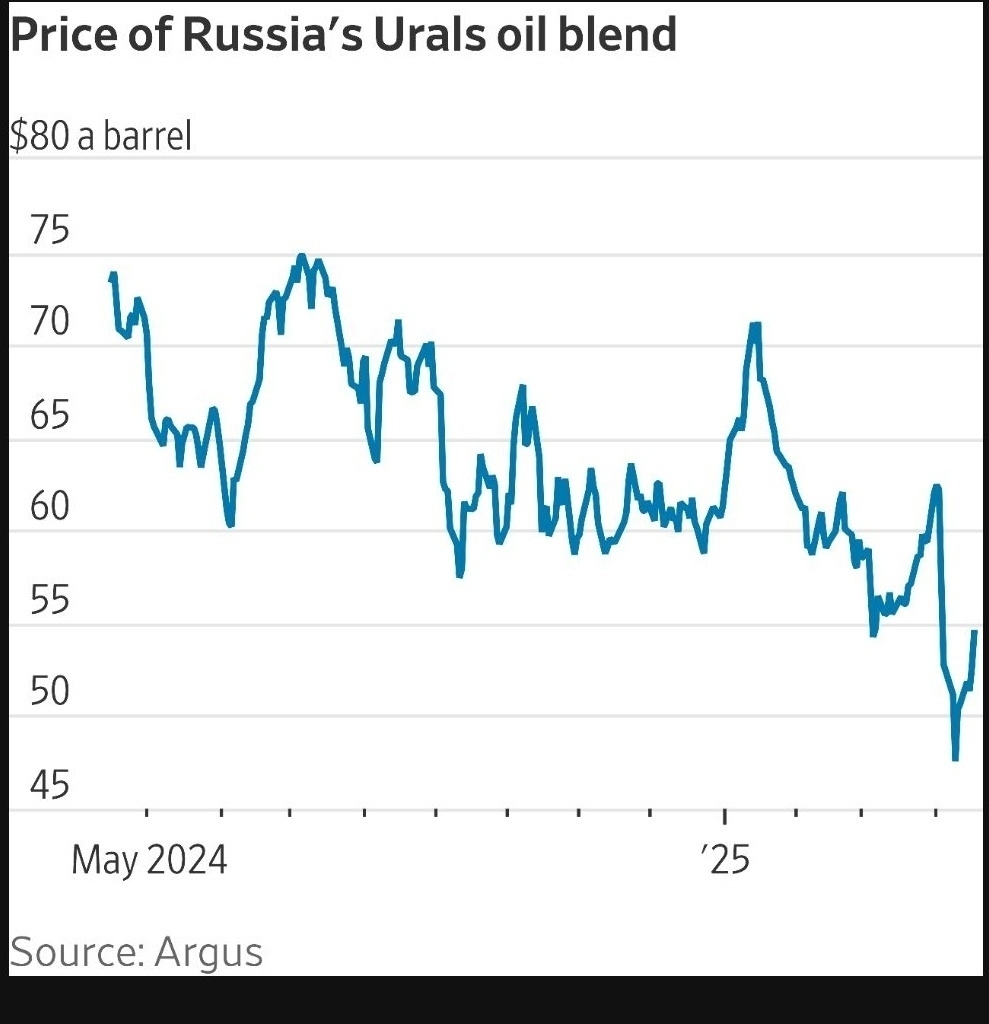
The WSJ carries analysts from J.P. Morgan “that despite Moscow becoming more insulated from global trends because of sanctions and severed international ties, the tsunami generated by U.S. trade policy is unlikely to leave Russia unscathed.”
Putin’s national-security state is in many ways built on oil wealth. A catastrophic fall in the oil price in the 1980s contributed to the dissolution of the Soviet Union. A recovery in 1999, when Putin was named Russian prime minister, aided his rise to power. For that reason, the government regards a fall in oil prices as a national-security threat.
Oil’s central place in the Russian economy extends beyond the state coffers. In what economists call a multiplier effect, a booming energy industry cascades to adjacent sectors: steel for the pipes used by oil drillers, for instance, or construction for the infrastructure around refineries. A contraction would have knock-on impacts across whole communities that are organized around and supported by the extraction and refining of crude.
